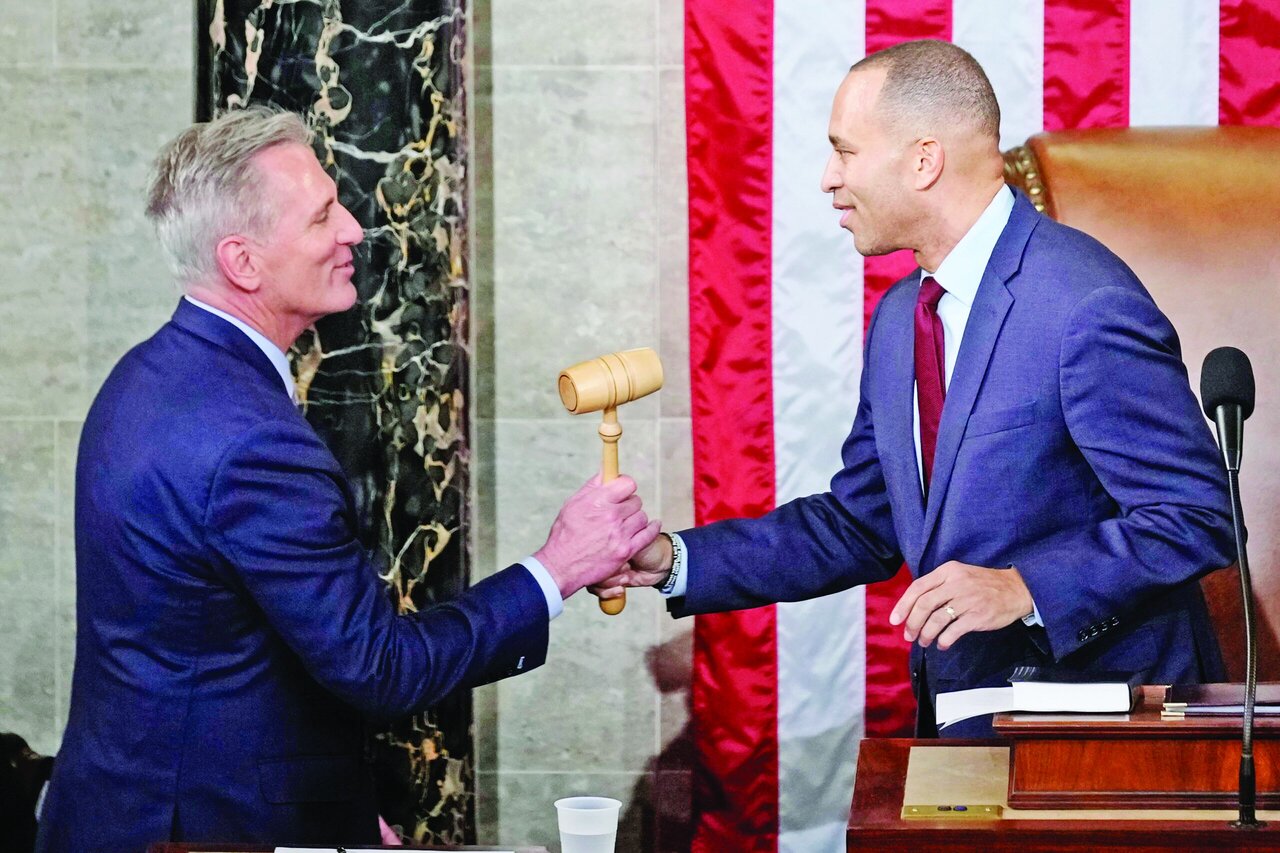Tweedledum and Tweedledee
House committee advances bipartisan bill to make Iran sanctions “permanent”

TEHRAN- On Wednesday, the House Foreign Affairs Committee passed a bill that is supported by both parties to keep Iran under sanctions permanently.
Reps. Michelle Steel, R-Calif., and Susie Lee, D-Nev., alongside committee chairman Michael McCaul, R-Texas, are the driving forces behind the Solidifying Iran Sanctions Act (SISA), which is about to go to a full vote on the House floor.
By eliminating the “sunset clause,” a clause that gives any action taken against the Islamic Republic an expiration date, from any sanctions against the country, the bipartisan SISA of 2023 can make the sanctions on Iran that were put in place in 1996 – or numerous other measures, permanent.
The measure would make the economic sanctions imposed against Iran in 1996, which are credited with having slowed down their alleged efforts to build nuclear and biological weapons as well as terrorist attacks against the United States and its Arab allies and partners, permanent.
Steel said, “I am very grateful to the House Committee on Foreign Affairs for voting to pass my bill, the Solidifying Iran Sanctions Act today.”
Steel’s measure was praised by McCaul, who added that he is “proud to support this important legislation.”
The bipartisan legislation, according to Lee, “is one step closer to becoming law and keeping Iran in check.”
It is worth saying that the American officials themselves know better than anyone else that Iran’s nuclear activity is benign and is not intended for military purposes.
To put it more clearly, the American intelligence community has invariably issued documents and pieces of intelligence confirming overtly the civilian nature of Iran’s nuclear program.
Political analysts believe that the U.S. has tried to justify its malfunctioned policy on Iran through representing it as a threat to the world security.
The U.S. has always shown that its sanctions scenario against Tehran is a threadbare tactic, and it is lacking value and effect.
The UN nuclear watchdog body, the International Atomic Energy Agency (IAEA), has robustly monitored the terms of the Iran deal, officially known as the Joint Comprehensive Plan of Action (JCPOA), and confirmed Tehran’s commitments but instead this is the U.S. to blame that reneged on its commitment to the deal under the former U.S. President Donald Trump. Surprisingly enough, the same path has been taken by his successor, Joe Biden.
There are some rumors saying that a deal is possible between Iran and the United States. If it is the case, the Congress tried to obstruct it.
It is crystal clear that a bad and good game is underway between the U.S. administration and the Congress to forge a new bill against Iran.
More importantly, it stands to reason that both parties of the U.S. Congress are Tweedledum and Tweedle-dee when it comes to hostility toward Iran.
Leave a Comment